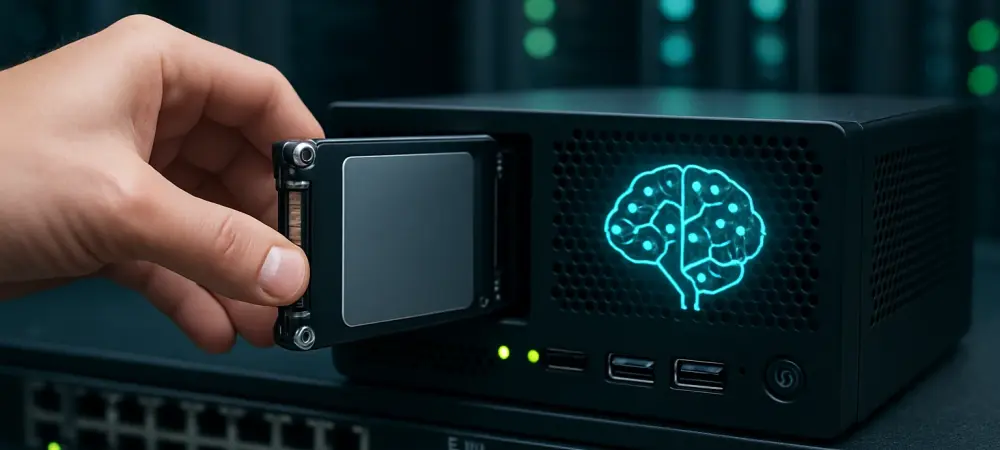The advent of innovative storage solutions is transforming enterprise operations by enhancing AI inference at the edge. Advanced storage technologies, including tailored solid-state storage, are critical for meeting the dynamic needs of AI data pipelines.
Overview of AI Inference and Storage Industry
AI inference at the edge is growing in significance, allowing organizations to process data locally rather than relying predominantly on central data centers. Current storage technologies are pivotal in supporting this transformation, with key players like PEAK:AIO and Solidigm leading innovations that improve storage capacity and efficiency.
Storage technology catering to AI inference has witnessed significant evolution. Previously reliant on general-purpose storage systems, the industry now prioritizes specialized solutions for handling massive datasets amid growing hardware demands. With advancements in solid-state drives, tailored solutions now meet specific data pipeline stages, such as training clusters and inference tasks.
Trends and Developments in Storage Technology
Emerging Trends Shaping the Industry
Recent breakthroughs in storage technology are fueling AI inference capabilities, with a shift toward memory-speed and scalable solutions. The focus has shifted toward optimizing performance while concurrently addressing power efficiency. As hardware evolves, the necessity for robust, high-capacity SSDs becomes apparent, facilitating large-scale adoption and future innovation potential.
Market Performance and Future Outlook
Analyzing current market data reveals impressive growth trajectories in storage technology tailored for AI. Futuristic insights suggest continual architectural innovations by GPU vendors, possibly integrating memory into AI infrastructures.
Challenges and Solutions in Storage for AI Inference
Issues like data security compliance, scalability, and cost are prevalent hurdles. Overcoming these roadblocks requires strategic solutions, including developing open and adaptable storage systems that can handle increased data loads efficiently. Additionally, partnerships between storage providers and AI developers are pivotal in enabling tailored infrastructures that cater to specific requirements. Anticipating regulatory changes, solutions that ensure compliance and enhance data security measures are essential. Open collaboration with regulatory bodies will likely result in refined strategies conducive to both technological innovation and compliance.
Regulatory Impact on AI Storage Solutions
Regulatory scrutiny significantly influences the storage technologies utilized for AI inference. Compliance requirements centered on data protection, security measures, and identity verification impact industry practices. Understanding these regulations is paramount for storage providers aiming to innovate without impeding regulatory alignments.
Future Directions in AI Storage and Inference
The evolution of storage technologies significantly influences AI inference capabilities. Innovations in SSD technology toward high-capacity, low-power solutions are poised to redefine enterprise storage frameworks. Forecasts highlight a trajectory toward integrating memory directly into AI infrastructures, providing heightened processing power and elevating efficiency levels.
Conclusion and Recommendations
The exploration of innovative storage technologies reveals their critical role in propelling AI inference at the edge. Key findings underscore the need for tailored infrastructure solutions to address the varied demands of AI data pipelines. Enterprises seeking growth should consider the integration of advanced storage technologies to optimize their AI operations, aligning with market trends and regulatory compliance to capitalize on emerging opportunities.

